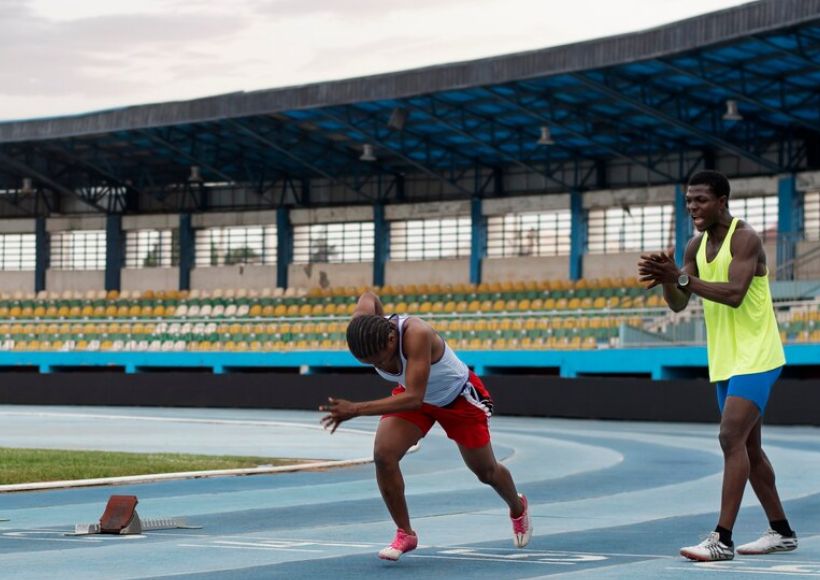Unlocking Your Athletic Potential: The Role of Sports Psychology in Achieving Peak Performance
Welcome to “Unlocking Your Athletic Potential,” where we delve into the fascinating world of sports psychology and its profound impact on athletic performance. While physical training and conditioning are essential components of athletic success, the mind also plays a critical role in determining an athlete’s ability to perform at their peak. In this blog, we’ll explore the principles of sports psychology, examine its influence on athletic performance, and provide practical strategies for harnessing the power of the mind to unlock your full athletic potential.
Understanding Sports Psychology:
Sports psychology is the study of how psychological factors affect performance and participation in sports, exercise, and physical activity. It encompasses a wide range of topics, including motivation, goal setting, confidence, concentration, anxiety management, visualization, and mental toughness. According to research published in the Journal of Applied Sport Psychology, sports psychology interventions have been shown to enhance athletic performance, improve mental skills, and promote overall well-being among athletes.
The Role of Sports Psychology in Achieving Peak Performance:
Sports psychology plays a crucial role in helping athletes maximize their performance and achieve their goals. Here are some ways in which sports psychology contributes to athletic success:
- Enhancing Mental Skills: Sports psychology interventions, such as goal setting, imagery, self-talk, and relaxation techniques, help athletes develop and refine mental skills that are essential for success in sports. These skills improve focus, confidence, resilience, and emotional control, enabling athletes to perform at their best under pressure.
- Managing Pressure and Anxiety: Competitive sports can be inherently stressful and anxiety-provoking, leading to performance anxiety and underperformance. Sports psychology techniques, such as stress management, mindfulness, and cognitive restructuring, help athletes cope with pressure, regulate emotions, and perform more consistently under stress.
- Building Confidence and Self-Belief: Confidence is a key predictor of athletic performance, influencing an athlete’s belief in their abilities and willingness to take risks. Sports psychology interventions, such as performance profiling and positive self-talk, help athletes build confidence, overcome self-doubt, and maintain a resilient mindset in the face of challenges.
- Optimizing Mental Preparation: Mental preparation is just as important as physical preparation in sports. Sports psychology techniques, such as pre-performance routines, visualization, and simulation training, help athletes mentally rehearse their performance, build mental resilience, and optimize readiness for competition.
Practical Strategies for Harnessing the Power of Sports Psychology:
Here are some practical strategies for incorporating sports psychology principles into your training and competition:
- Set Clear Goals: Establish specific, measurable, achievable, relevant, and time-bound (SMART) goals to provide direction, motivation, and focus for your training and competition.
- Develop Mental Skills: Practice mental skills such as visualization, goal setting, positive self-talk, and relaxation techniques to enhance focus, confidence, and resilience in sports.
- Cultivate a Growth Mindset: Embrace challenges, learn from setbacks, and view failure as an opportunity for growth and improvement. Adopting a growth mindset fosters resilience, persistence, and a willingness to take risks in pursuit of excellence.
- Stay Present: Practice mindfulness and staying present-focused during training and competition to maintain focus, reduce distractions, and perform more consistently under pressure.
Here are some statistics and data to support the points made in the blog, along with links to the sources for further reading:
Impact of Sports Psychology on Athletic Performance:
According to research published in the Journal of Applied Sport Psychology, sports psychology interventions have been shown to enhance athletic performance, improve mental skills, and promote overall well-being among athletes.
Role of Confidence in Athletic Performance:
A study published in the Journal of Sport and Exercise Psychology found that confidence is a key predictor of athletic performance, influencing an athlete’s belief in their abilities and willingness to take risks.
Effectiveness of Visualization in Sports Performance:
Research published in the Journal of Imagery Research in Sport and Physical Activity suggests that visualization, or mental imagery, can enhance sports performance by improving focus, confidence, and skill execution.
Benefits of Mindfulness in Sports:
According to a meta-analysis published in the journal Sport, Exercise, and Performance Psychology, mindfulness interventions have been shown to improve athletic performance by reducing anxiety, enhancing focus, and increasing resilience.
Impact of Goal Setting on Sports Performance:
A review published in the International Journal of Sports Science & Coaching suggests that goal setting is an effective strategy for enhancing sports performance, providing direction, motivation, and focus for athletes.
These statistics provide valuable insights into the impact of sports psychology on athletic performance and the effectiveness of various mental skills and strategies in sports. Feel free to explore the provided sources for more in-depth information on each topic.
Conclusion:
In conclusion, sports psychology plays a crucial role in unlocking your athletic potential and achieving peak performance in sports. By understanding the principles of sports psychology, developing mental skills, and implementing practical strategies for mental preparation and performance optimization, you can enhance your performance, build resilience, and achieve your goals in sports. Remember, the mind is a powerful tool that can be trained and conditioned, just like the body. With the right mindset and mental tools, you can unlock your full athletic potential and excel in your sport.
We have written extensively on Athletic conditioning and Cardio workouts, do check out those links as well. 🙂


